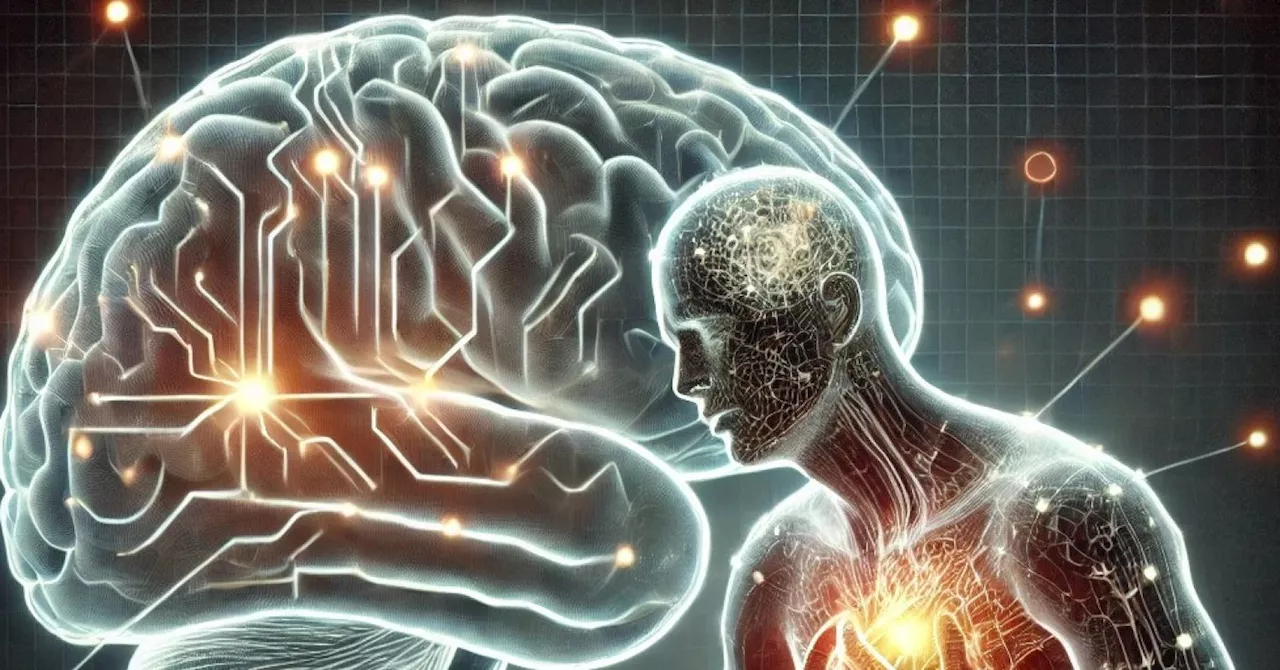A new study reveals a connection between slower brain development and an increased risk of unhealthy eating habits and eating disorders in young adults.
A new study reveals that the delayed maturation of the cerebellum, a brain region responsible for appetite control, may significantly contribute to an increased risk of unhealthy eating habits and disordered eating behaviors in young adulthood. The research, conducted by scientists at King's College London Institute of Psychiatry, Psychology & Neuroscience, analyzed data from nearly 1,000 individuals across England, Ireland, France, and Germany.
Participants underwent MRI scans that highlighted a correlation between slower brain maturation and the development of mental health issues and subsequent eating disorders. Teenage brains typically undergo a process of maturation as they transition into adulthood, characterized by the shrinkage of the brain's outer layer as unnecessary neural connections are pruned away. However, individuals with eating disorders appear to experience this process at a slower pace, influenced by a combination of genetic and environmental factors. The study's findings demonstrate that both high body mass index (BMI) during adolescence and the presence of mood and behavioral disorders can impact brain maturation and increase the likelihood of developing an eating disorder by age 23.These insights may pave the way for the development of more personalized interventions for individuals at risk of developing eating disorders. Researchers suggest that teenagers experiencing mood and behavioral disorders could benefit from educational programs focused on promoting healthy eating habits. Such initiatives, they argue, could play a crucial role in preventing the onset of eating disorders and supporting overall brain health
EATING DISORDERS BRAIN DEVELOPMENT TEENAGERS MENTAL HEALTH BMI
United States Latest News, United States Headlines
Similar News:You can also read news stories similar to this one that we have collected from other news sources.
 Brain Shrinkage Linked to Poverty and InequalityA new study published in This research highlights the critical role of structural inequality in shaping brain health. Researchers analyzed brain scans from over 2,100 people and found that greater economic inequality in a nation was associated with reduced brain volume and connectivity, independent of other factors like age, sex, education, or cognitive ability.
Brain Shrinkage Linked to Poverty and InequalityA new study published in This research highlights the critical role of structural inequality in shaping brain health. Researchers analyzed brain scans from over 2,100 people and found that greater economic inequality in a nation was associated with reduced brain volume and connectivity, independent of other factors like age, sex, education, or cognitive ability.
Read more »
 Brain Differences Linked to Disordered Eating in Young PeopleResearch reveals differences in neural activity in response to visual food stimuli depending on whether they are presented consciously or unconsciously. Studies also show a link between emotional eating and unhealthy dietary patterns, as well as brain differences in young people with eating disorders.
Brain Differences Linked to Disordered Eating in Young PeopleResearch reveals differences in neural activity in response to visual food stimuli depending on whether they are presented consciously or unconsciously. Studies also show a link between emotional eating and unhealthy dietary patterns, as well as brain differences in young people with eating disorders.
Read more »
 New Research Identifies Brain Pathway Linked to Panic DisorderA recent study in mice has identified a specific brain pathway involving PACAP neurons that may play a key role in panic disorder. The findings offer hope for faster and more effective treatments for this common mental health condition.
New Research Identifies Brain Pathway Linked to Panic DisorderA recent study in mice has identified a specific brain pathway involving PACAP neurons that may play a key role in panic disorder. The findings offer hope for faster and more effective treatments for this common mental health condition.
Read more »
 Green Tea Consumption Linked to Fewer Brain Lesions in Japanese SeniorsA new study reveals a potential link between drinking green tea and a reduced number of white matter lesions in the brains of Japanese seniors, suggesting a possible protective effect against dementia.
Green Tea Consumption Linked to Fewer Brain Lesions in Japanese SeniorsA new study reveals a potential link between drinking green tea and a reduced number of white matter lesions in the brains of Japanese seniors, suggesting a possible protective effect against dementia.
Read more »
 Brain connectome phenotype linked to cerebrovascular disease can track cognitive declineResearchers have uncovered novel insights into how brain function disruptions related to cerebrovascular disease (CeVD) interact with Alzheimer's disease (AD) pathology to impact neurodegeneration and cognition in older adults.
Brain connectome phenotype linked to cerebrovascular disease can track cognitive declineResearchers have uncovered novel insights into how brain function disruptions related to cerebrovascular disease (CeVD) interact with Alzheimer's disease (AD) pathology to impact neurodegeneration and cognition in older adults.
Read more »
 Sleep Disruptions Linked to Brain Volume ChangesA new study published in the journal finds that sleep disruptions are associated with changes in brain structure, particularly an increase in the size of the hippocampus.
Sleep Disruptions Linked to Brain Volume ChangesA new study published in the journal finds that sleep disruptions are associated with changes in brain structure, particularly an increase in the size of the hippocampus.
Read more »
